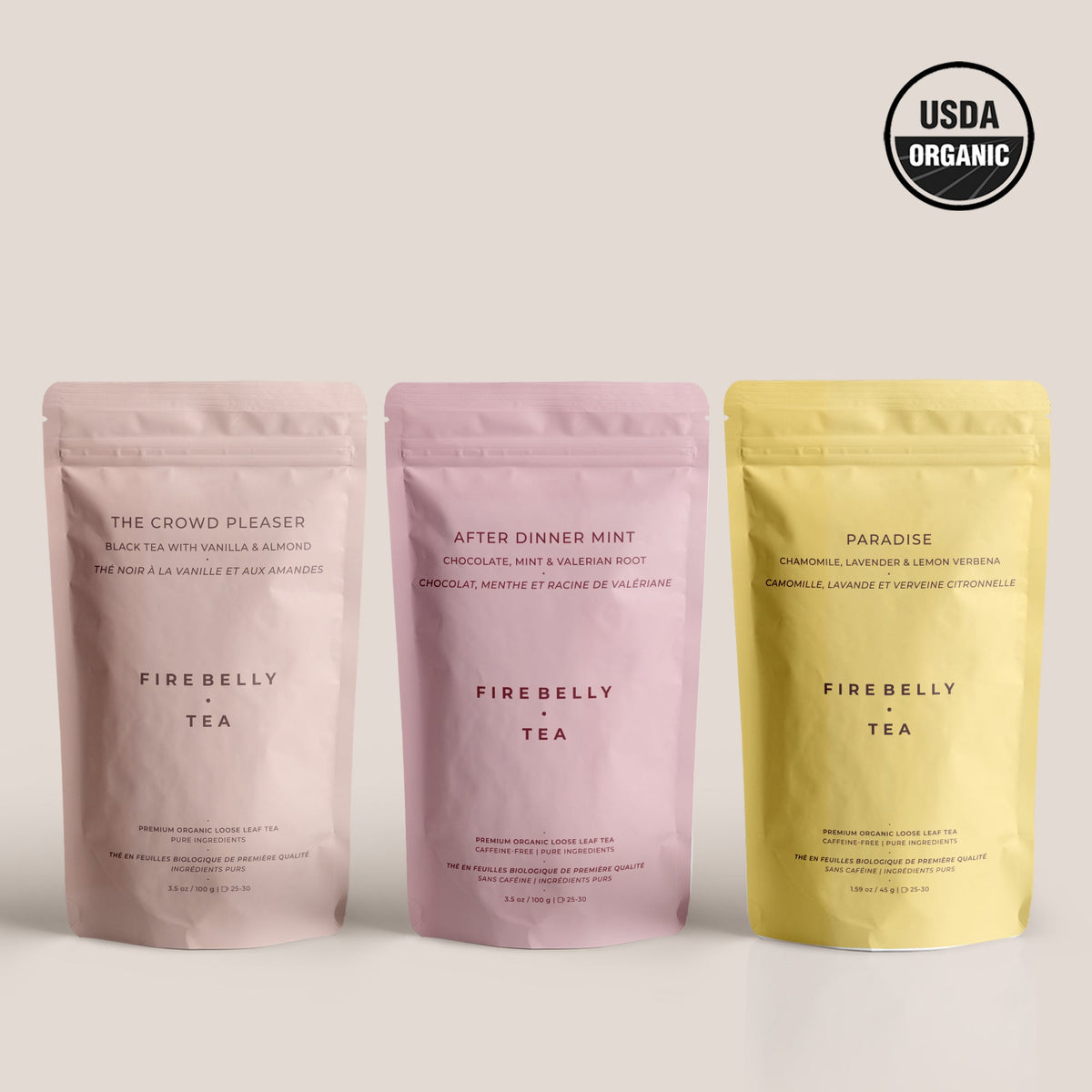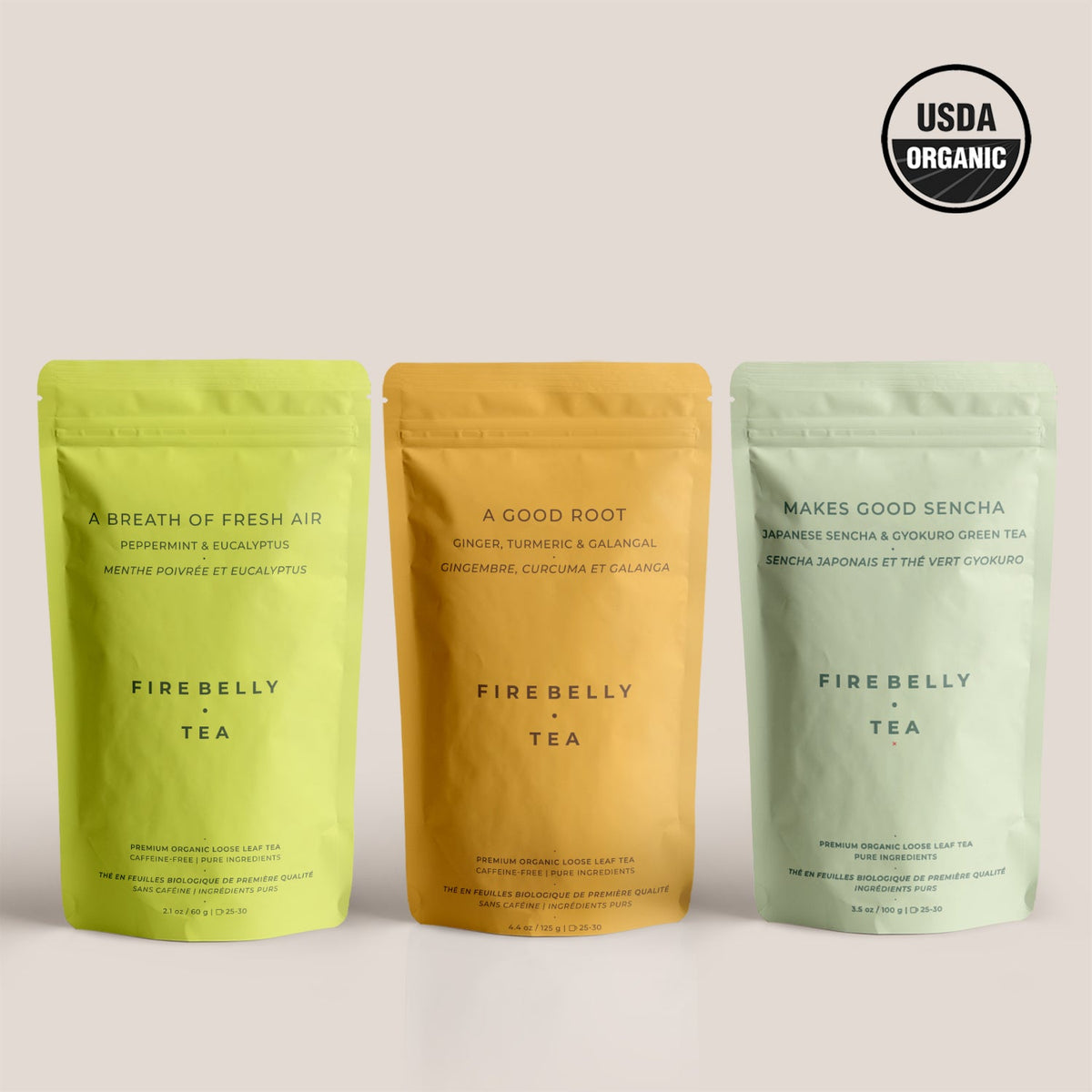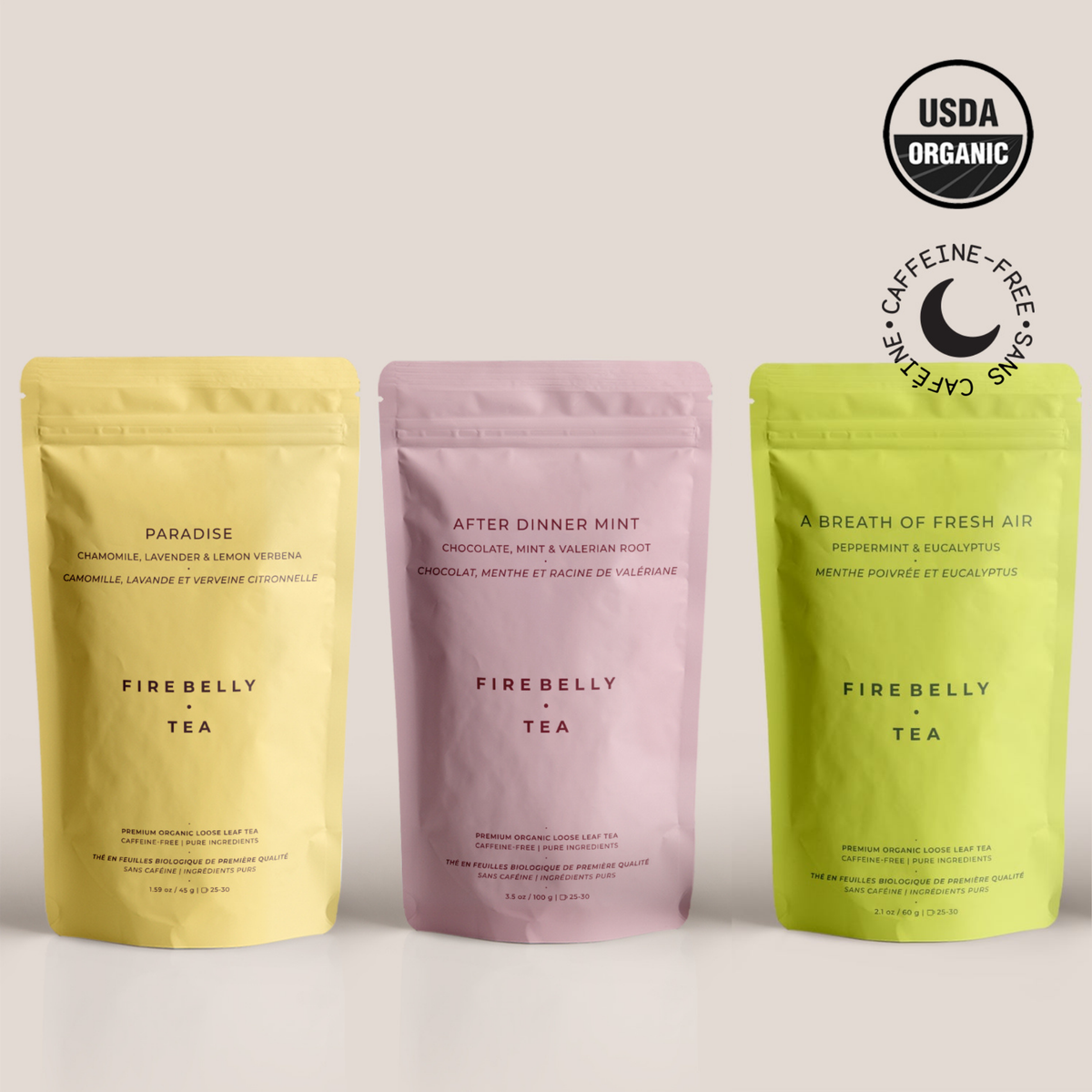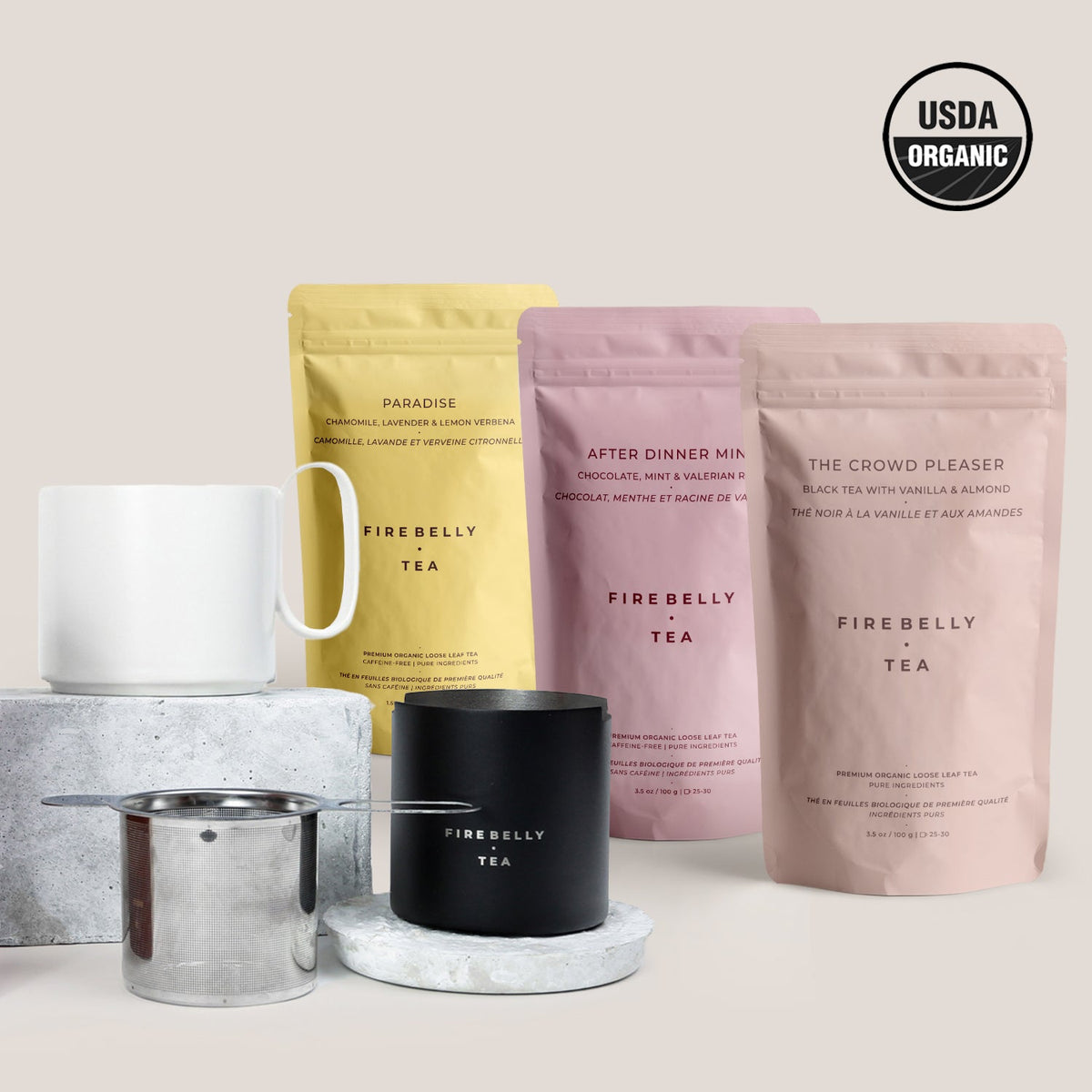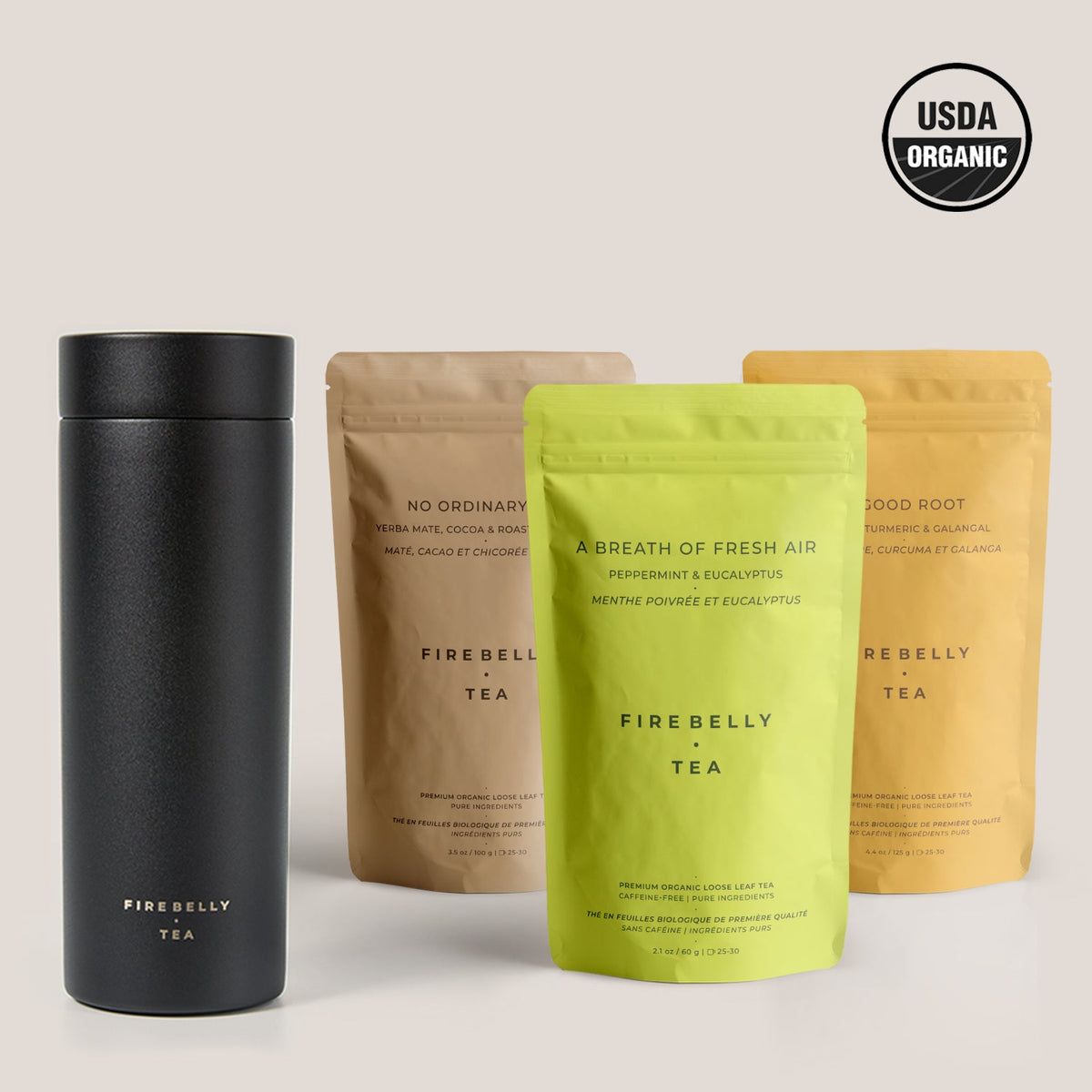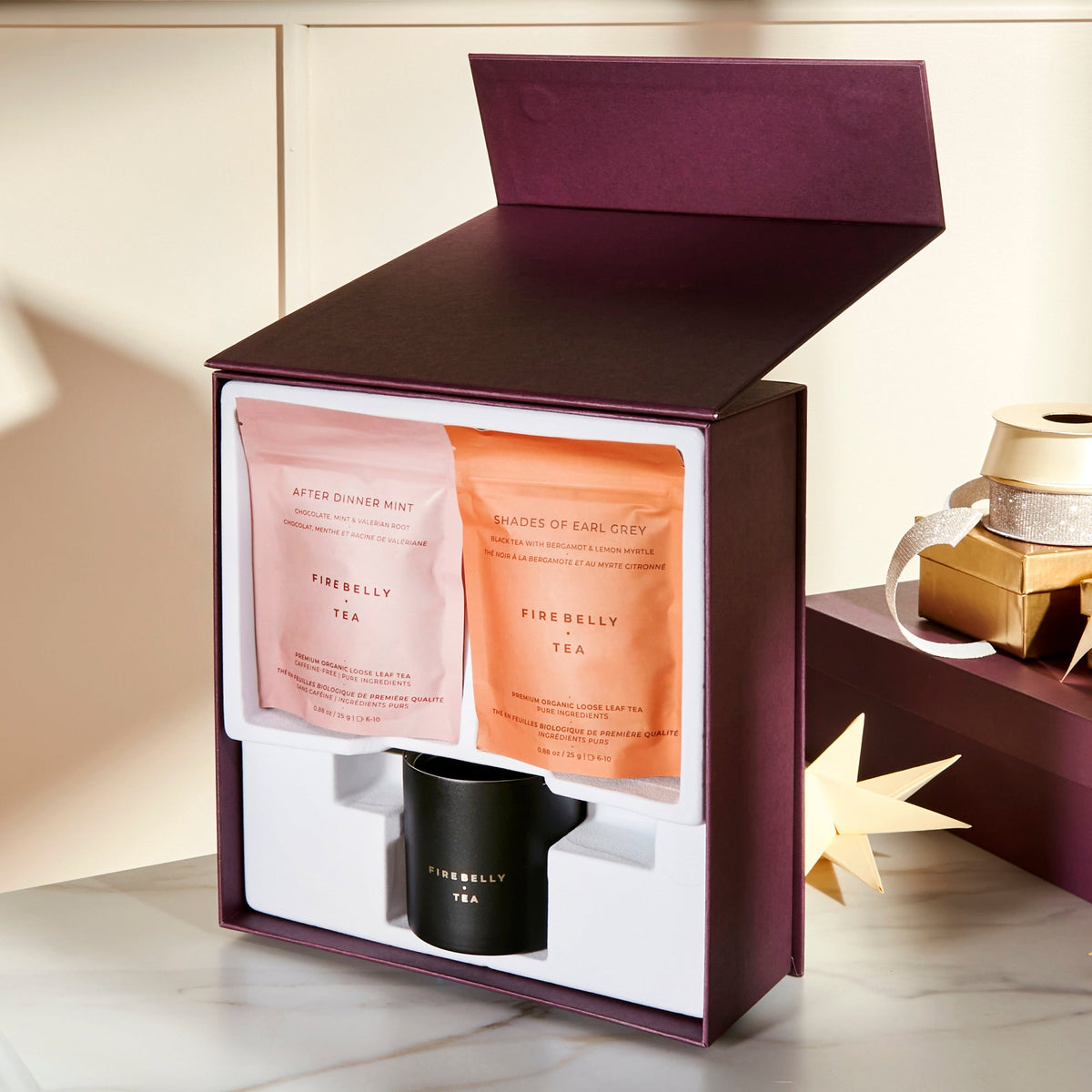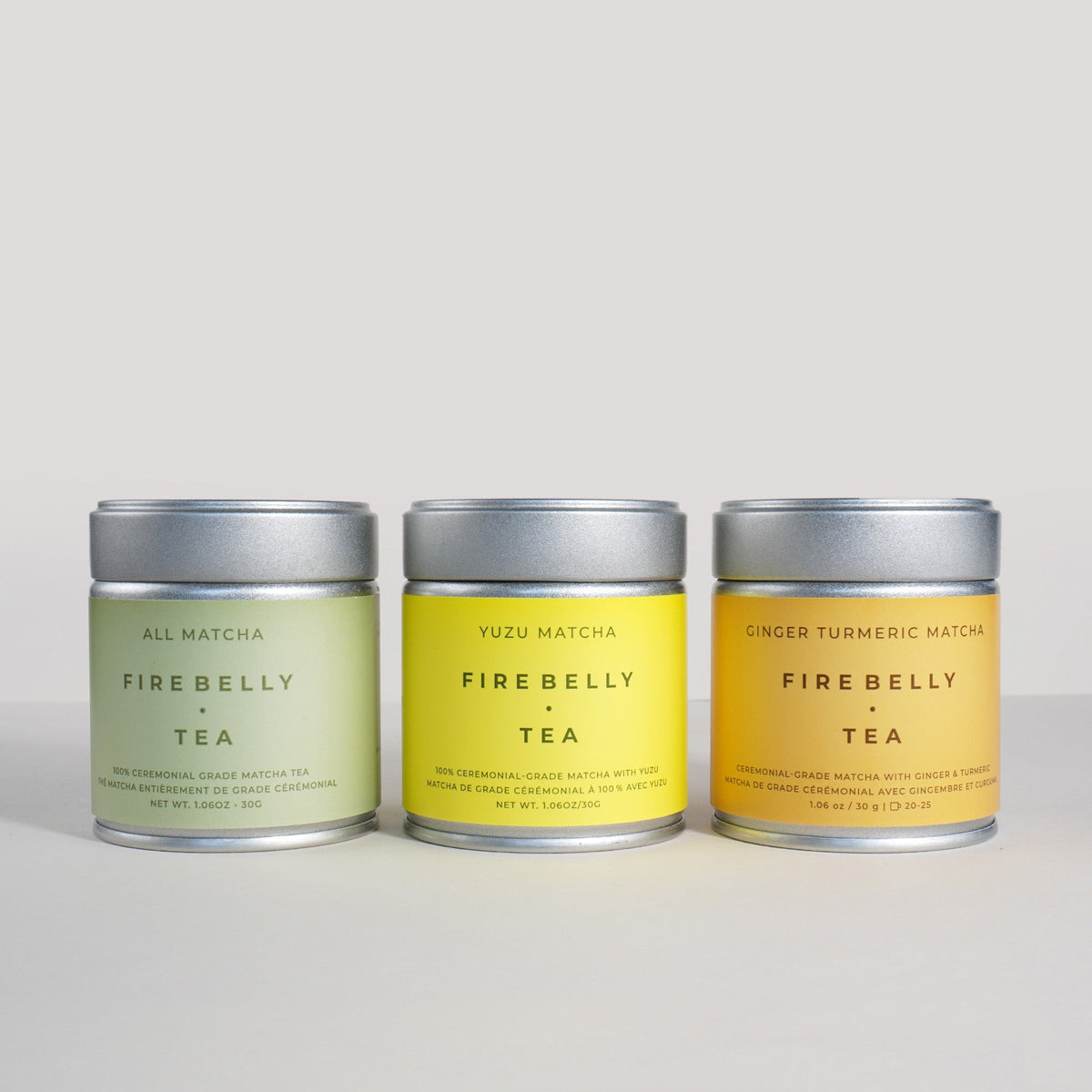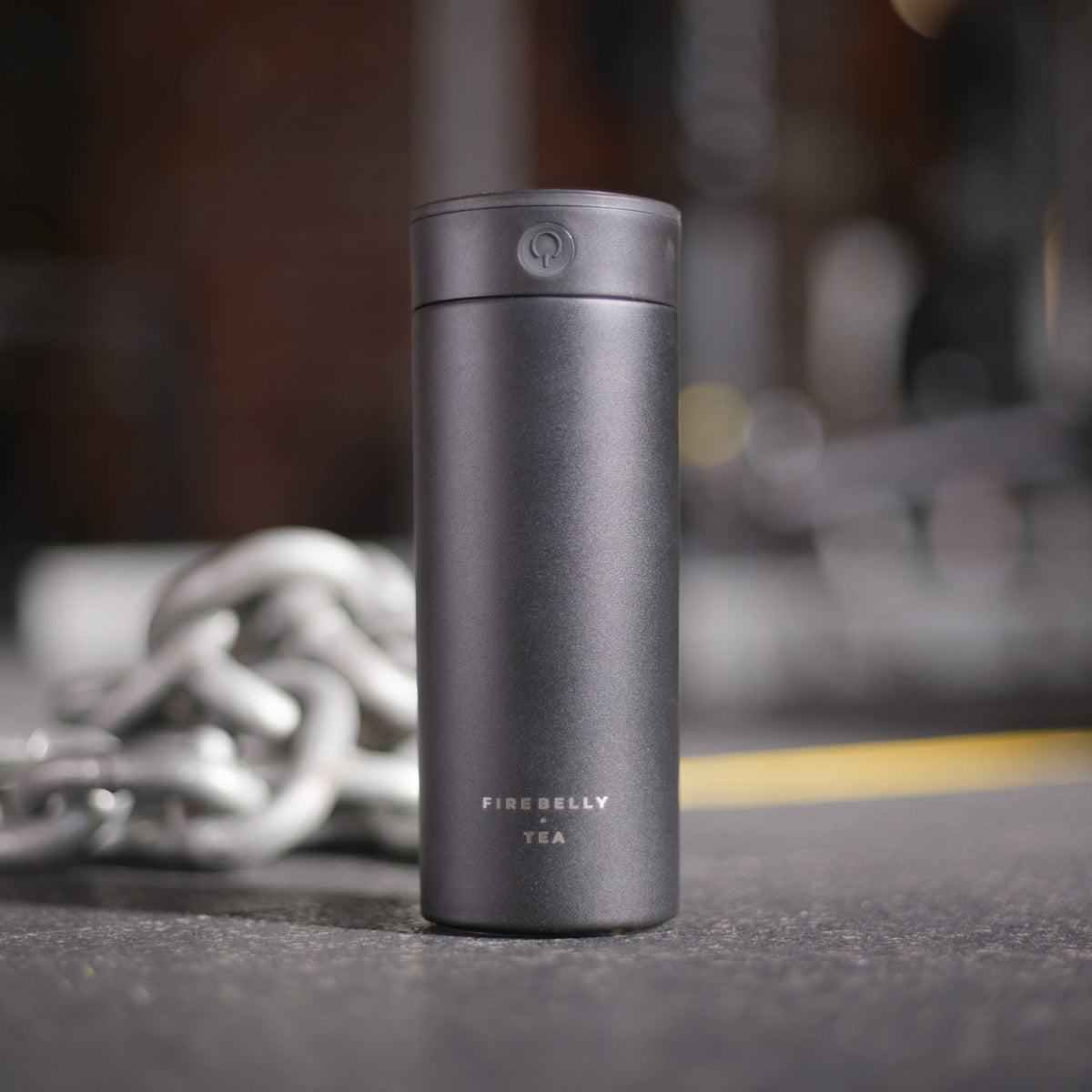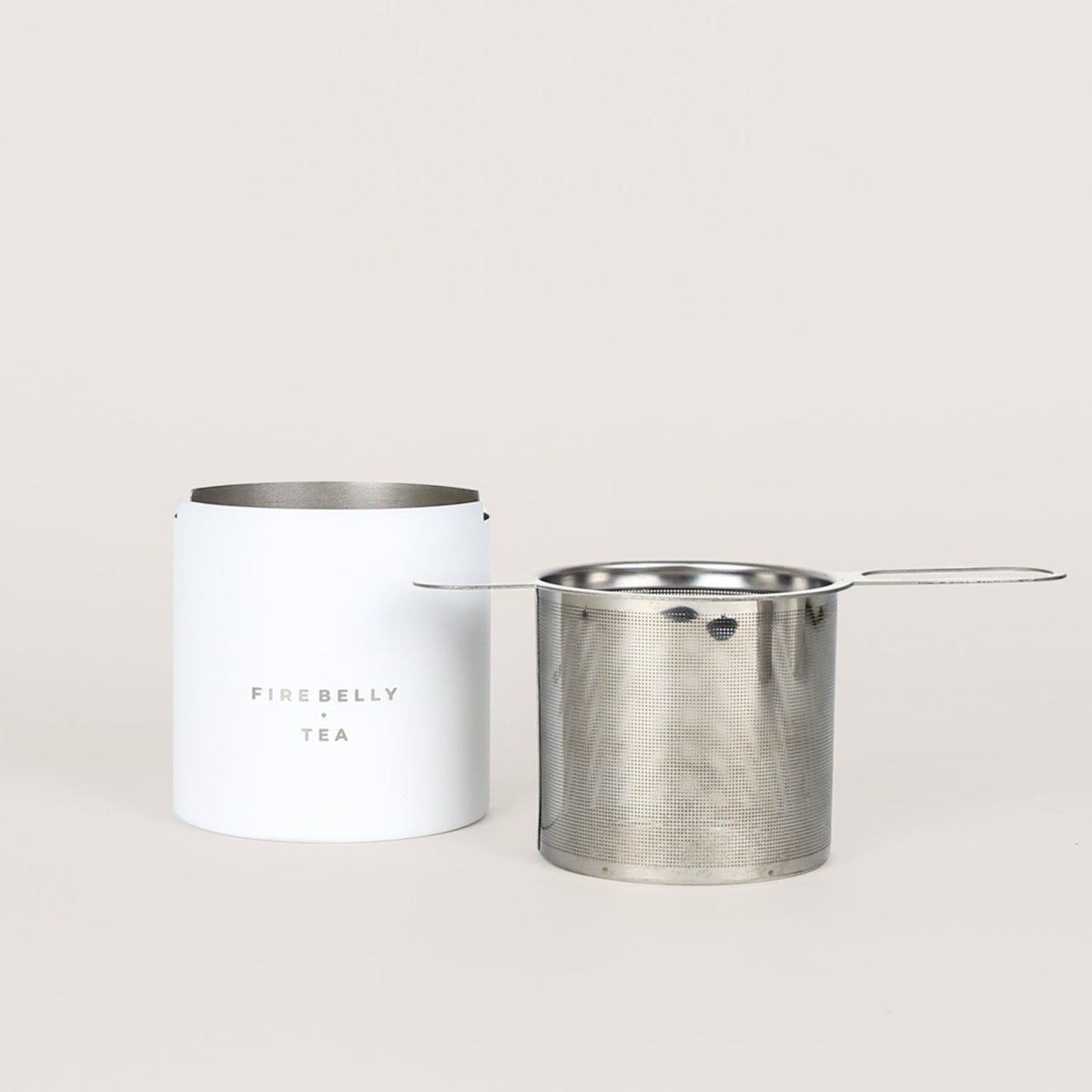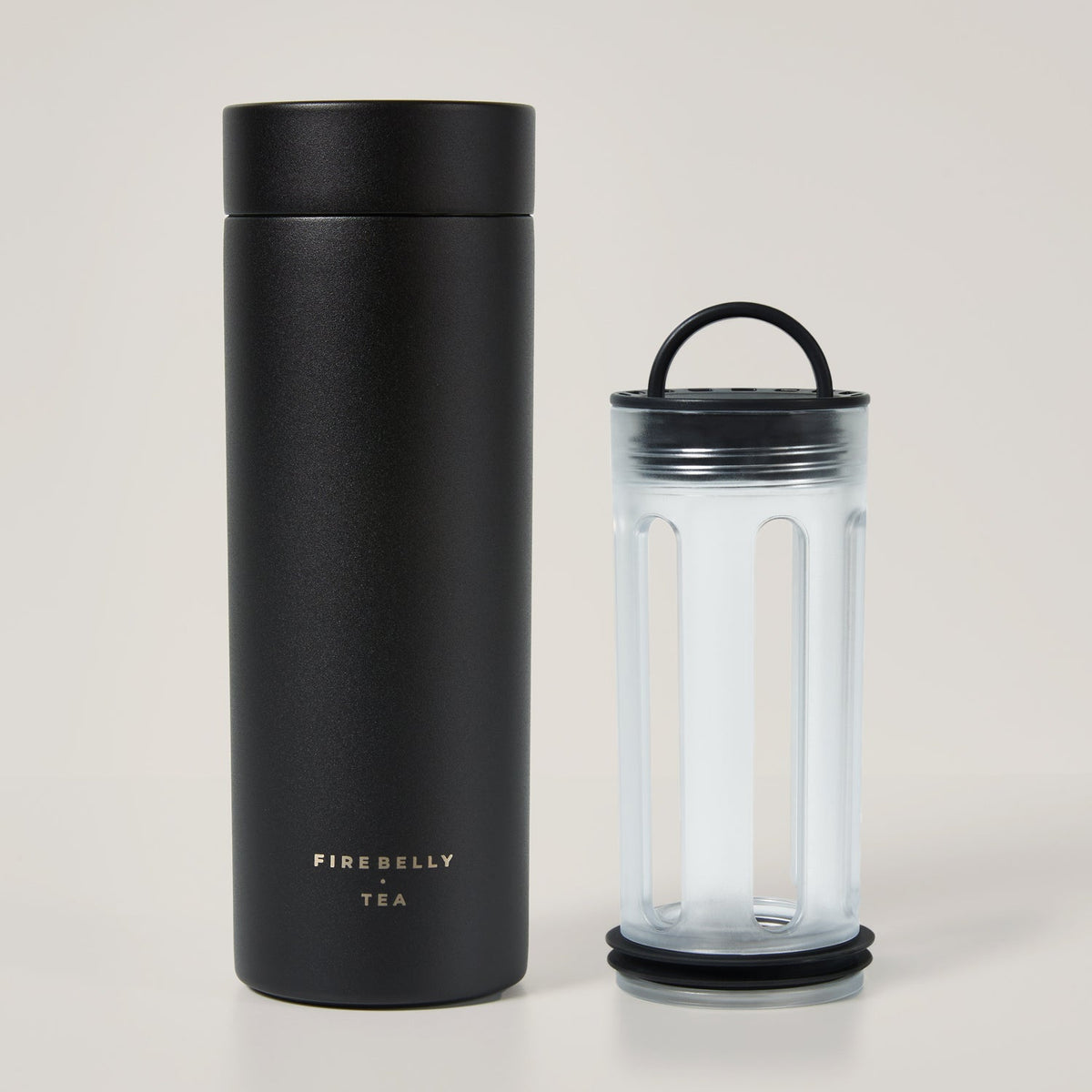Tea can be an excellent way to start your morning or keep your energy up for that afternoon appointment. But did you know that tea may also be one of the best beverages to drink for a good night's sleep? If you're having trouble getting some much-needed shut-eye, it might be time to turn to tea for a sound slumber. This article will explore the top ten sleepy-time teas you can take before bed.
Are Herbal Teas Good For Sleep?
All "true teas" come from the Camellia sinensis tea plant. The teas harvested from this plant are black, green, oolong, matcha, and white tea, all containing a certain amount of caffeine, which makes them a better choice to drink first thing in the morning or early in the day.
However, herbal teas contain low to zero caffeine and are perfectly fine to drink before nodding off for the night. Before taking any new supplement, beverage, or food, check with your doctor to ensure it is right for you or won't affect prescribed medications.
Herbal Tea Varieties You Can Take For Better Sleep
Below is our list of the top herbal teas you can drink before sleep. While some teas provide a pleasant and refreshing flavor that gives a feeling of calmness, others are earthy and robust. Whatever your preference, there are various teas with superb sleep-inducing qualities.
#1. Chamomile Tea
Chamomile has had a long-standing history for its medicinal properties. It has helped treat everything from stomach issues to allergies, wounds, and insomnia. Although there is very little scientific research on chamomile's ability to help with better sleep, research has shown that people who drink chamomile tea may fall asleep faster, have better overall sleep, and avoid a dreaded sleep disorder like insomnia.
Chamomile's natural calming effect is directly related to the flavonoid called apigenin. This plant compound attaches to your brain's benzodiazepine receptors and may help decrease feelings of anxiety and help induce sleep. Research on drinking chamomile tea and sleep-disturbed postnatal women shows reduced depression symptoms and improved sleep.
#2. Lavender Tea
Most people have seen lavender used for everything from shampoos to face creams and mostly lavender aromatherapy oils. Its vibrant purple color and mellow scent make it a popular choice for many calming and relaxing products. And a warm cup of lavender tea is no exception.
Research shows that lavender can help a person fall asleep because of how the plant's compound interacts with the neurotransmitter GABA (gamma-aminobutyric acid) by quieting the brain to help a person fall asleep. It also acts as an anxiolytic, relieving anxiety and providing mild sedative properties. No wonder people will use lavender oil aromatherapy before bed to achieve a night of deep and rejuvenating sleep. Drinking lavender tea can help do the same.
#3. Valerian Root Tea
Valerian tea, like chamomile tea, is another herb used for medicinal purposes. It can naturally reduce stress and relieve anxiety, but valerian tea can also help you fall asleep faster while enjoying a deep and sound sleep.
Made from dried valerian root, this tea has a strong earthy flavor and aroma, and many prefer to drink it with some honey, maple syrup, or almond milk to make it taste better. When combined with other herbs like hops, valerian root can create a calming effect as a tea or supplement form.
Valerian root, like Lavender tea, increases the GABA levels in your brain. The result is lower anxiety and increased feelings of calmness and relaxation. Valerian root has two sedatives, valepotriates and sesquiterpenes. Both cause drowsiness and deep sleep.
#4. Green Tea
Although most of the teas on our list are herbal tea, it is worth noting that even green tea may help fight fatigue and generate a great night's sleep. The trick is to drink green tea throughout the day rather than at night. There are two reasons for this. One is because of the caffeine content green tea possesses. The other is due to a compound in green tea called L-theanine.
L-theanine is a plant compound that reduces stress-related hormones and neutron excitement and helps your brain calm down. If you find a low-caffeine green tea or caffeine-free one, you'll get all those calming benefits without worrying about caffeine overload.
Green tea may also provide better mental health by reducing the effects of sleep apnea. Sleep apnea is a term to describe the pausing or stopping of breathing during sleeping. This chain of intermittent breathing pauses may deprive the brain of oxygen, reducing its chances of it going through the usual restoration process at night. Drinking a cup of green tea during the day may help prevent the cognitive problems associated with sleep apnea - and may help give you a great night's sleep!
#5. Lemon Balm Tea
A member of the mint family, lemon balm, or lemon balm leaf, is mainly used in tea and lemon balm essential oil for aromatherapy. The properties of lemon balm act as an antibacterial agent and as a way to treat infections, but drinking lemon balm tea can also help with various sleep problems and improve sleep quality.
Drinking a cup of lemon balm tea just before bed may help reduce insomnia symptoms and improve subjective sleep quality. Still, this potent cup of tea may also reduce the onset of generalized anxiety disorder, depression, and restlessness.
#6. Passionflower Tea
Passionflower tea, like chamomile tea, may help reduce anxiety and calm restless thoughts in the brain. The flavonoids in passionflower tea bind to the benzodiazepine receptors in the brain and provide a relaxing and calming effect.
Research suggests that when combined with other herbal supplements like valerian, passionflower can be just as effective as other, more traditional sleep aids. Even though the study used passionflower capsules and more research is needed, tea drinkers report that drinking tea made with passionflower has the same effect on sleep quality.
#7. Ginger Tea
Ginger root is more commonly known for its ability to enhance meals, but it is also a powerful tea and herbal medicine with many health benefits. Ginger is known for treating things like nausea, sore throats, and inflammation due to the number of rich antioxidants it contains. Ginger tea is already caffeine-free, so you can drink it just before bed for a better night's sleep and to get all of the other health benefits this wonder root contains.
#8. Peppermint Tea
Peppermint tea is made from the peppermint plant's dried leaves. Aside from its refreshing scent and flavor, it also can help improve sleep and provide a calming effect. Peppermint's ability to calm the mind and body is because of the main active component, menthol. Not only does menthol calm the body's systems, but it can help with stomach issues such as bloating, gas, and stomach cramps.
Peppermint tea not only soothes but may play a part in reducing the symptoms of stress and anxiety. One study, in particular, found that inhaling peppermint essential oil helped improve mental clarity and mood. Another study found that menthol helped enhance sleep quality and the length of time a person slept.
#9. Magnolia Bark Tea
Not as common as drinking chamomile or valerian root tea, magnolia bark tea is one of the best teas to help you get a good night's rest. It has been used as a sleep aid for thousands of years. The primary compound, honokiol in magnolia tea, binds to GABA receptors in the brain, causing a person to become sleepy quicker and sleep more soundly.
Like valerian tea, magnolia bark may not have the most pleasant taste. Sweeten the beverage with honey or maple syrup to make it more pleasing. There are some reports of waking up during the night after drinking magnolia before bed, but the time to get back to sleep is greatly reduced.
#10. Skullcap Tea
Skullcap tea, or Scutellaria, is made from the Scutellaria lateriflora plant and has been used for centuries to help people stay calm and relaxed. The active compounds scutellarin and scutellarein have sedative effects on the human nervous system. Research shows that skullcap tea may also treat anxiety and insomnia and relieve pain and muscle spasms.
Bonus Tea: Rooibos Tea
Rooibos tea is a red herbal tea from the fermented leaves of the Aspalathus linearis shrub, which grows exclusively in a small part of South Africa. For centuries this tea has been used to help with everything from heart disease to diabetes.
Rooibos is naturally decaffeinated and low in tannins, which makes it the perfect bedtime tea. Its soothing qualities help relax the body, help with stomach issues, and give you a better night's sleep. Add a little milk, honey, or lemon to your cup to elevate your cup of rooibos. It will deepen the flavor, comfort your tastebuds and add a more relaxing feeling to your drink.
Tips for Incorporating a Bedtime Tea into Your Nightly Routine
You can find the best tea for sleep by following a few simple steps. Here are a few things you can do to help you sleep better:
-
Use organic tea and stick to loose-leaf teas over tea bags. Loose-leaf tea goes through less processing than the tea in tea bags, which means most of the beneficial nutrients are more potent - such as the benefits that help promote sleep. So skip the tea bag for a nice tablespoon of tea leaves.
-
Add calming activities like yoga, stretching, and reading a book before you drink tea to calm you down. Those extra activities start to relax the body and mind making drinking that tea for sleep much more effective.
-
Drink different teas for sleep and compare which ones help you fall asleep faster and stay asleep longer. Once you find the right tea for you, have it every night consistently so that your body becomes accustomed to its effects.
Final Thoughts for a Better Bedtime Routine
It's important to know it can be complicated to treat insomnia. Although many herbal teas promote relaxation and may help create restful sleep, poor sleep quality may result from an underlying health condition or anxiety requiring medical attention. To properly treat anxiety and insomnia, you can look to tea to help, but be sure to seek advice from a trained medical professional.
If you have trouble falling asleep, a relaxing tea like chamomile flower, peppermint, and valerian can do wonders for improved sleep quality and reduce troublesome sleep disturbances. A nice cup of tea may be just what you need to help you sleep. And you'll get a few additional health benefits as well.
Look at these sleep-inducing teas if you're wondering what's the best tea to help with your restless nights.
